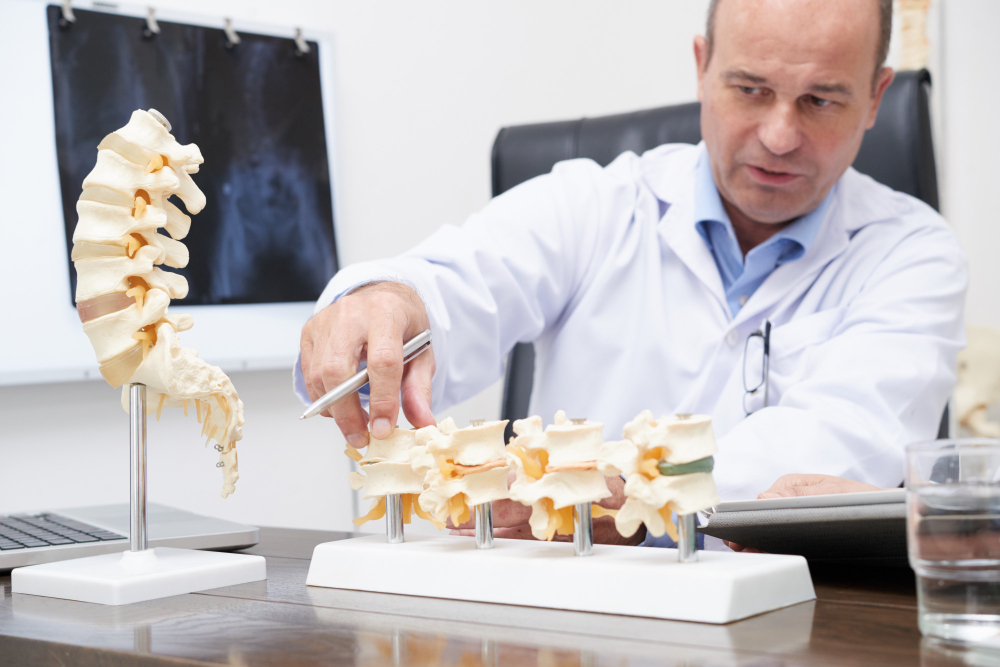
Disc herniation is a common spinal condition that can cause significant discomfort and impairment in daily activities. Understanding the intricacies of this condition, its diagnostic procedures, and management strategies is crucial for anyone experiencing related symptoms. If you’re searching for expert guidance, consulting an orthopedic surgeon in Debary, FL, at the Central Florida Bone & Joint Institute can offer you reliable insights and effective treatment plans.
What is Disc Herniation?
Disc herniation occurs when the soft center of a spinal disc pushes through a crack in the tougher exterior casing. This can lead to irritation of nearby nerves, resulting in pain, numbness, or weakness in an arm or leg. While some people experience no symptoms, others may find their discomfort debilitating.
Common Causes
Herniated discs are most often caused by age-related wear and tear known as disc degeneration. With age, spinal discs lose some of their water content, making them less flexible and more prone to tearing or rupturing. Other factors that can increase the risk of a herniated disc include:
- Heavy Lifting: Using your back muscles instead of your legs to lift heavy objects can lead to disc herniation.
- Genetics: Some people inherit a predisposition to developing a herniated disc.
- Sedentary Lifestyle: Lack of physical activity can weaken the muscles that support the spine, increasing the risk of injury.
Symptoms to Watch For
Symptoms of disc herniation can vary depending on the location of the herniated disc and whether it is pressing on a nerve. The most common symptoms include:
- Pain: Often described as sharp or burning, this pain usually radiates to the arms or legs.
- Numbness or Tingling: These sensations commonly occur in the body parts served by affected nerves.
- Muscle Weakness: Affected muscles may become weak, potentially affecting your ability to lift or hold items.
If you experience these symptoms, visiting an orthopedic surgeon in Debary, FL, can help determine the severity of the herniation and appropriate treatment methods.
Diagnostic Procedures
Proper diagnosis of a herniated disc typically involves a combination of medical history evaluation, physical examination, and imaging tests.
Medical History and Physical Examination
An orthopedic surgeon will begin by asking about your symptoms and any recent injuries or physical activities. A physical examination will follow, where the doctor checks for:
- Reflexes
- Muscle strength
- Walking ability
- Sensitivity to touch
Imaging Tests
While physical exams can suggest a herniated disc, imaging tests provide a more definitive diagnosis. Common tests include:
- X-rays: While standard X-rays can't detect herniated discs, they can rule out other causes of back pain, such as infections, tumors, or spinal alignment issues.
- MRI (Magnetic Resonance Imaging): MRI scans produce detailed images of the spine's soft tissues, revealing herniated discs and their impact on surrounding nerves.
- CT Scan: A CT scan can provide clearer images of the spinal canal and reveal a herniated disc.
- Myelogram: This X-ray of the spinal canal involves injecting a special dye, highlighting any herniated disc pressing on the spinal cord or nerves.
Management and Treatment Options
Treatment for a herniated disc depends on the severity of the symptoms and the level of nerve involvement. Most patients find relief with non-surgical treatments, but surgery may be necessary if symptoms persist.
Non-Surgical Treatments
- Physical Therapy: Exercises to strengthen the back and improve flexibility can be beneficial.
- Medication: Pain relief can be achieved using over-the-counter or prescription medications like NSAIDs, muscle relaxants, or corticosteroids.
- Epidural Injections: Corticosteroid injections into the space around the spinal nerves can help reduce inflammation.
Surgical Options
If non-surgical treatments fail to alleviate symptoms after six weeks, surgery might be considered. Surgical options include:
- Discectomy: The most common procedure, where the protruding portion of the disc is removed.
- Laminectomy: Removal of part of the vertebrae (lamina) to relieve pressure on the nerves.
- Artificial Disc Surgery: Replacement of the damaged disc with an artificial one.
It’s important to consult with an experienced orthopedic surgeon to understand which treatment option is best suited for your specific condition.
Living with a Herniated Disc
Living with a herniated disc can be challenging, but several lifestyle changes can help manage symptoms and prevent further injury:
- Exercise Regularly: Focus on low-impact activities like swimming, walking, or cycling.
- Maintain Proper Posture: Good posture reduces unnecessary strain on your spine.
- Healthy Weight: Maintaining a healthy weight can reduce pressure on your spine.
- Quit Smoking: Smoking accelerates disc degeneration by reducing blood flow to the spine.
Seek Professional Help
If you're experiencing symptoms of a herniated disc and are considering consulting an orthopedic surgeon in Debary, FL, contact the Central Florida Bone & Joint Institute today. Our team of specialists is dedicated to providing tailored treatment plans designed to restore your health and improve your quality of life.
Call us now to schedule a consultation and take the first step toward recovery. Your path to pain relief and improved mobility starts here.